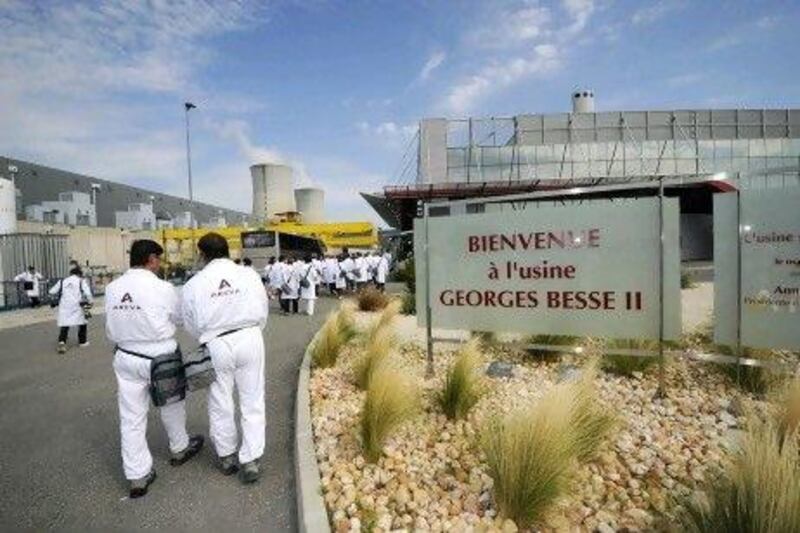New nuclear nations should not pursue uranium enrichment because it makes no commercial sense, says the UAE's top atomic envoy.
The comments made at an exclusive forum hosted by The National came amid growing concerns over Iran's nuclear programme, which some nations suspect is aimed at developing an atomic weapon, but Tehran says is for peaceful ends. Iran, which is subject to intensifying economic and political sanctions, has one commercial reactor in operation and several enrichment sites.
The UAE voluntarily gave up the right to enrich or reprocess nuclear fuel at the start of its own programme in 2008 in what is now regarded as the gold standard for nations seeking peaceful atomic power for the first time. In contrast to Iran's faltering progress in building a nuclear plant, Abu Dhabi has moved swiftly to issue a US$20 billion (Dh73.46bn) contract for four reactors, helped by close international co-operation. It expects to commission its first reactor in 2017.
"The UAE view is that for a country to develop nuclear power, starting from scratch, it makes no commercial sense or technical sense to develop full enrichment facilities," said Hamad Al Kaabi, the UAE representative to the International Atomic Energy Agency, the UN nuclear watchdog.
"The enrichment part of the nuclear programme is very technically challenging but also politically sensitive and commercially very expensive. It actually does not make sense for a country that's building one or five reactors or so to actually develop their own enrichment facilities."
Western nations have framed Iran's nuclear programme as a potentially aggressive military strategy rather than a case of bad business.
The UAE's programme was intended to provide a model of non-proliferation and the peaceful use of civilian nuclear power. Saudi Arabia, Jordan and Kuwait are among other nations that have been studying or even issued tenders for nuclear plants, although progress has been slow in those cases.
Emirates Nuclear Energy Corporation, the Abu Dhabi Government's nuclear company, expects this year to select the vendors for 15 years worth of fuel. Mr Al Kaabi is one of the officials at work ironing out future nuclear cooperation deals with nations such as Canada and Australia, top fuel exporters that can help the UAE ensure security of supply.
The UAE has also contributed money to an IAEA fuel bank that would allow nations without their own enrichment facilities to lock in supply of feedstock.
To prevent enrichment facilities from springing up across the globe, more partnerships and a stronger legal framework need to be created so that suppliers and buyers can work together, said Mr Al Kaabi.
Nations with difficulties seeking nuclear fuel also need more avenues to turn to for help. Despite being one of the newest aspirants to nuclear power, the UAE has already become an important catalyst for greater certainty in fuel supply.
"If there is a country that was denied supply because of political reasons, something beyond commercial and technical reasons, then there should be a mechanism to click in saying denying supply for this country is not fair," he said.
"A country like the UAE adds a lot of value for these solutions by being a customer."
ayee@thenational.ae
UAE presses the case for nuclear gold standard
New nuclear nations should not pursue uranium enrichment because it makes no commercial sense, says the UAE's top atomic envoy, Hamad Al Kaabi.

Editor's picks
More from the national




